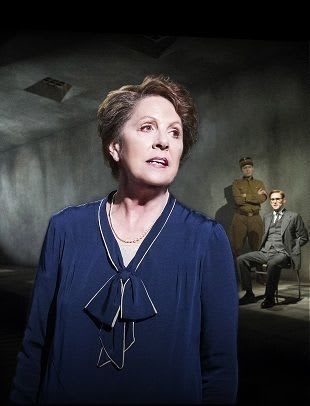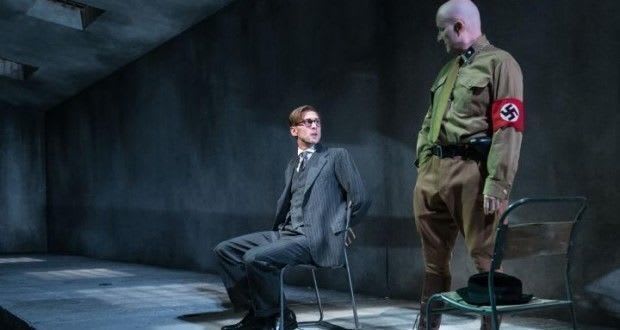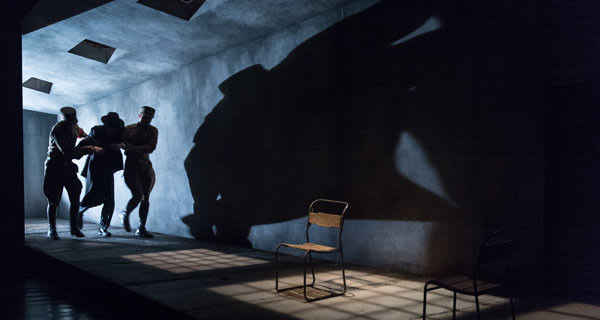Mark Hayhurst has written a biographical play, first seen in Chichester, about an unsung hero of pre-war Germany viewed not only through his own eyes but those of a loving mother.
In 1931, Hans Litten was a radical, young lawyer who appears to have been something of a showman. Repeatedly, he irritated the Nazi authorities with small shows of resistance.
However, the “Jewish atheist's” life-changing moment came in what became known as the Eden Dance Palace Trial. During the course of this court case, Litten subpoenaed Adolf Hitler and managed to ridicule the future Führer much to his own delight and, there can be no doubt, that of many German citizens.
Two years later though, following the Reichstag fire, the lawyer, played by Martin Hutson, was taken into "protective custody" and swiftly transferred into the first of three concentration camps.
There, in a tribute to the indefatigable spirit of humankind, he and two comrades defied the authorities who repeatedly beat and humiliated them, surviving as much through humour as dogged determination.
The scenes involving Mike Grady as future Nobel Peace Prize laureate Carl von Ossietzky and Pip Donaghy playing the relatively simple but incredibly brave Erich Mühsam are truly heart-warming but ultimately tragic.
Interspersed with the prison scenes taking place in a dank, bare concrete cell at the back of Robert Jones's set, Irmgard Litten, played with subtle empathy by Penelope Wilton, does everything that a mother can and much more in her attempts to save her son.
Getting little help from an ineffectual husband, Frau Litten refused to bow to the inevitable, again and again managing to obtain entry into the inner sanctum of SS Officer Doctor Conrad. John Light's character is the epitome of a cultured human being until crossed once too often when his Nazi claws emerge.
He did however show more generosity than one might have expected, allowing mother and son to meet, though he did have his own underlying motives.
In some ways, Doctor Conrad's behaviour was more rational and helpful than that of a weak-willed British diplomat whose desire to pacify the Germans is one of the few unconvincing elements in a well-constructed script from a playwright previously better known as a screenwriter that does contain a few too many simplifications in characterisation and behaviour.
By the end of 2½ hours, many viewers will have gained a much better understanding of German history, drawn parallels with the attacks on free speech leading to the recent Charlie Hebdo tragedy and enjoyed some splendid acting under the direction of Jonathan Church, particularly from Penelope Wilton.
They might also shed some tears at the end of a grim but necessary reminder of the terrors and irrationality of the Holocaust.


